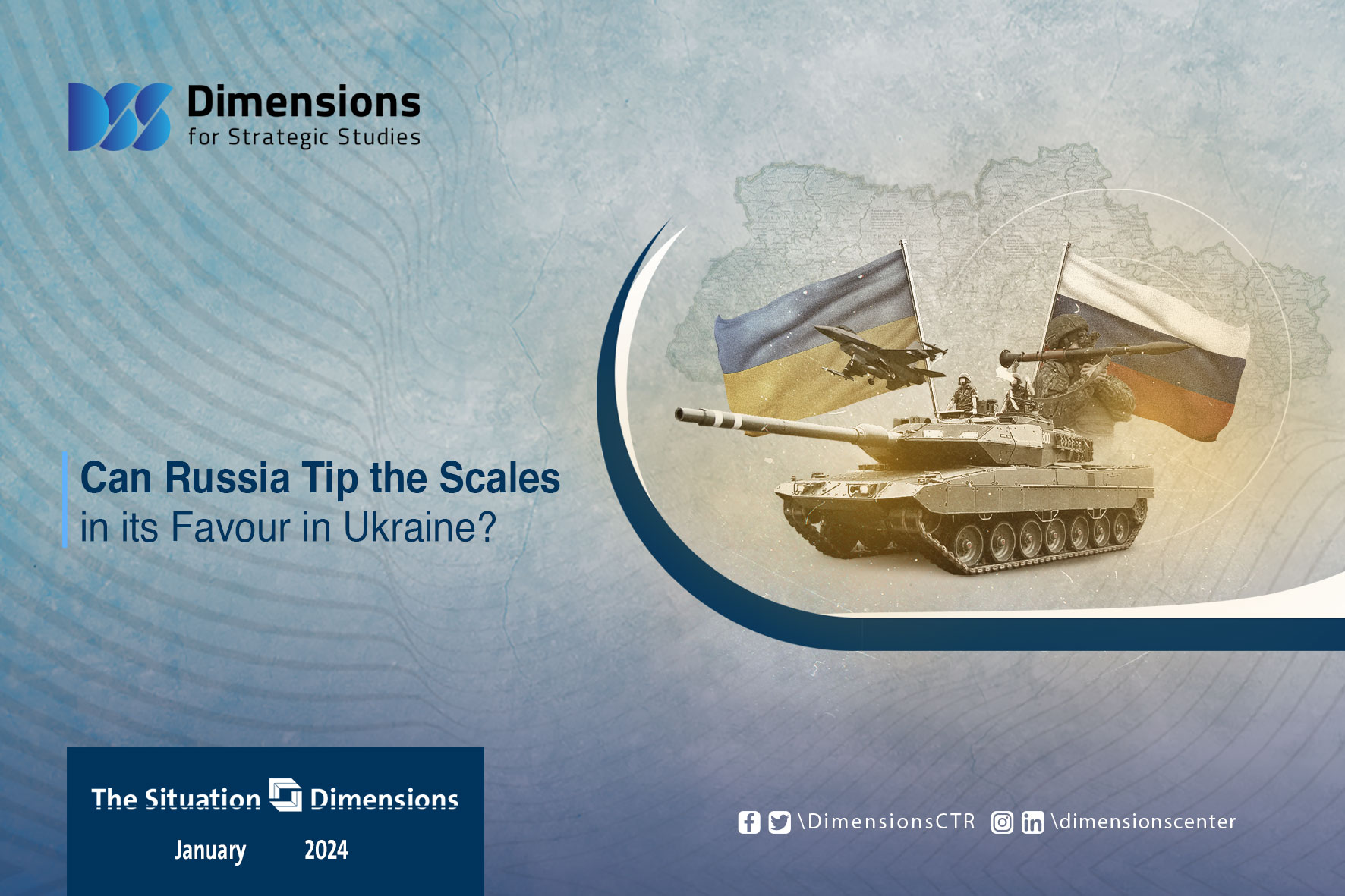
Can Russia Tip the Scales in its Favour in Ukraine?
2024-01-052128 view
Russia marked the start of 2024 in bloody fashion, with a massive escalation in its air attacks against Ukraine. Ukrainian President Volodymyr Zelensky announced that Russian forces had launched some 500 missiles and drones over a five day period, killing 32 people in the capital Kyiv and at least 60 people nationwide, in one of the deadliest escalations since Russia’s 2021 invasion of Ukraine.
As if to send a strong message to mark the new year, Russia’s attack on Kyiv on January 2 continued for six hours, involving a wave of drones followed by attacks with various types of rockets.
Russian President Vladimir Putin had expressed satisfaction with the military situation in Ukraine in mid-December, stressing the need to achieve victory and Russia’s goals in the war: disarming Ukraine and ensuring its neutrality. Russia is trying to enforce this in practice by showing off its capabilities and stepping up its attacks to impose a new military balance.
Russia is aided in this by multiple factors. The Kremlin perceives that the West is tiring of extending ongoing support to Ukraine, which imposes high costs on European and American budgets. It has also benefitted from the growing complexity of arming Ukraine in light of the war in Gaza, which has created competition between Ukraine and Israel for limited supplies of Western weapons. The failure of last year’s Ukrainian counterattack to achieve tangible results has also added to Western frustration.
However, the high price tag of the latest attacks raises questions about Russia’s ability to continue carrying out similar attacks to achieve its goals. Some analysts have estimated that the attacks cost the Kremlin more than $2 billion. Whether such attacks will allow Russia to impose its will depends on the extent to which the Ukrainian government remains steadfast or is forced to make concessions.
Zelensky still refuses to bow to Russian demands, and many in the West are continuing to call for more military support for Ukraine. Foreign Minister Radoslaw Sikorski has called on Western allies to tighten sanctions on Russia and to provide Kyiv with long-range missiles in response to the latest bombing campaign.
As things stand, Russia has an opportunity to tip the balance of the conflict in its favor. However, this is unlikely to be conclusive, as Ukraine is not likely to submit to Russia’s current, maximalist demands.
The question of how the war will end remains dependent on the flexibility of the two parties and on international developments, particularly the outcome of the war in Gaza and tensions in the Middle East, and the results of the American elections. Russia is hoping the Republicans will win control of the White House, which would be likely to roll back American support for Ukraine in a significant way.





